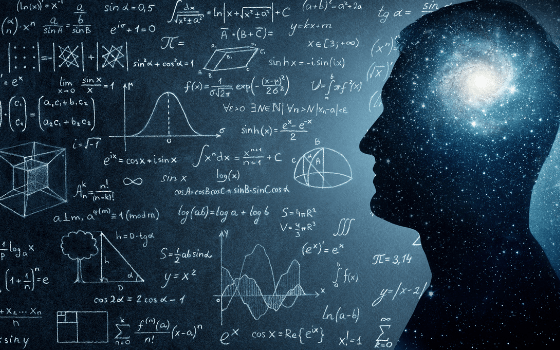Introduction

Image by Dzhulbee.
Getty Images Pro via https://www.canva.com
Numbers are all around us and are associated with every aspect of our daily life. The great Greek philosopher and mathematician, Pythagoras, believed that “all is number” and that “numbers rule the universe”! Irrespective of whether you believe it or not, there is always a good reason to enhance your numeracy and math skills, as these skills refer to our ability to use, interpret and communicate mathematical information to deal with real world situations and everyday tasks -from getting to work on time to paying bills. This quest will help you explore the fascinating universe of numbers and maths, boost your numerical and problem-solving skills and also focus on how numbers and maths can change our vision of the world.
Task

The universe within. Elements of this image furnished by NASA.
By Trifonov Evgeniy, Getty Images Pro via https://www.canva.com
1, 2, 3, 4, 5, 6, 7, 8, 9... and 0. Do you realize that with these symbols, we can write any rational number imaginable? Have you ever wondered why we use these ten particular symbols and why we arrange them the way we do? Or have you ever heard that some numbers have been considered “dangerous enough” to be banned? Where you among those students who kept asking in school “but why do we learn mathematics?”. This quest aspires to provide you with (at least some) answers to all the above-mentioned questions through related material that combines science, humor, charm, fun and inspiration!
Process
Go through the weblinks and the videos available in the resources section (all in multiple languages) and try to develop your knowledge regarding numeral systems and the world of maths. Your first task is to write down ten interesting facts that you learned! You can also visit the website of the National Statistical Authority in your country and gather interesting information from there too or conduct further online research and find fascinating facts related to the “numbers of industry” or “numbers of cultural heritage” or “numbers of transportation” or… or… (the “Tallest Buildings” website is an example that might inspire you). Your second task is to watch –and solve– two funny and educational video-riddles aiming to boost your STEM skills: “the counterfeit coin riddle” and the “bridge riddle”.
Conclusion
Numbers and mathematics: we use them in our every daily life not only for calculations and applications, but also for inspiration. This quest travels back to the origins of numbers, highlighting that the history of numbers and maths goes hand-in-hand with the development of civilization. If the universe is “full of hidden truths”, maths can help us go beyond our intuition to uncover many “mysteries”, at the same time that their role can be vital in everyday situations.
Evaluation
- This quest helps learners to plan and carry out investigations, using a range of sources to find information and summarize the most important and interesting conclusions.
- Learners expand their knowledge regarding numerical systems and the use of maths in everyday life.
- Participants improve their mathematical and problem-solving skills.
- They also use their minds creatively and effectively to solve riddles.
- Learners acknowledge the critical role of Science, Technology, Engineering, and Math (STEM) Skills.
Resources
Links
Ted Talk: “The magic of Fibonacci numbers” by Arthur Benjamin (in 44 languages)
https://www.ted.com/talks/arthur_benjamin_the_magic_of_fibonacci_numbers
Ted Talk: “Math is forever” by Eduardo Sáenz de Cabezó (in 27 languages)
https://www.ted.com/talks/eduardo_saenz_de_cabezon_math_is_forever
Ted Talk: “What’s so sexy about math?” by Cédric Villani (in 25 languages)
https://www.ted.com/talks/cedric_villani_what_s_so_sexy_about_math















